 HydraFacial®
HydraFacial®11 Dermatologist-Approved Nighttime Moisturizers For Every Skin Type
From lightweight water gel formulas to ceramide-rich creams, we’ve assembled the ultimate dermatologist-approved guide to nighttime moisturizers.
Needless to say, sleep is a time for the mind and body to rest and rejuvenate — and that goes for the skin as well. It’s not an illusion that you wake up looking refreshed after a good night’s sleep, and the positive effects of beauty sleep are only bolstered by the right skincare routine. For most, that includes a nighttime moisturizer. Skin hydration naturally decreases throughout the day, so it’s important to apply a night cream to restore those moisture levels when they are at their lowest.
To better understand what you should be putting on your face before bed, we tapped three board certified dermatologists. From lightweight water gel formulas to ceramide-rich creams, we’ve assembled the ultimate dermatologist-approved guide to nighttime moisturizers.
The Purpose of Nighttime Moisturizer
If you already have a daytime moisturizer, you may be wondering if you need a nighttime one as well. “Nighttime facial moisturizers are really critical since our bodies do a lot of overall rest and regeneration at night,” explains Amanda Doyle, MD, a board certified dermatologist at Russak Dermatology Clinic in New York City. “Having the right products on your skin during its restorative phase allows the products and body to work in harmony for repair overnight.”
A nighttime face moisturizer is recommended for most skin types, especially patients with dry skin or those using medicated topicals, says Nadine Kaskas, MD, a New York-based board certified dermatologist. Those with oily skin may consider skipping a nighttime moisturizer — especially during the more humid summer months. “If your skin is really oily, then you can skip a nighttime moisturizer,” says Samer Jaber, MD, a board certified dermatologist and founder of Washington Square Dermatology in NYC. “But, for most of us, adding a light moisturizer is good to help repair the skin barrier.”
Dermatologist-Approved Nighttime Moisturizers
As with most skincare products, it’s important to consider your skin type and concerns when choosing a formula. In the case of moisturizers, which come in a variety of weights, you’ll want to think about the season and/or weather as well. Dry, arid air usually calls for richer creams and balms, while tropical climates may only need lightweight serums and lotions. Consulting with a board certified dermatologist can help you determine what will be best for your skin. Below are the formulas our experts recommend to their patients:
For Post-Procedure Skin: Avene Cicalfate+ Restorative Protective Cream
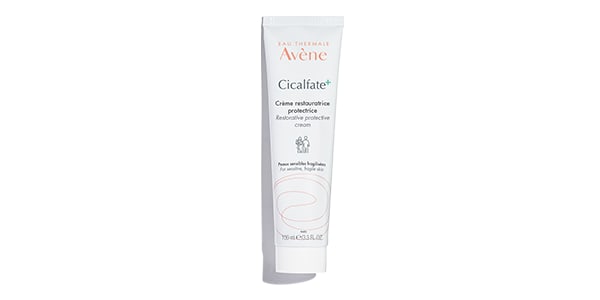
If you are looking for a moisturizer that will soothe dry skin and be gentle enough to use after aesthetic treatments and procedures, this nourishing cream from the French pharmacy brand is it. Dr. Jaber likes the mineral-rich formula for its ability to calm inflamed skin. $42, aveneusa.com
For Barrier Repair: SkinCeuticals Triple Lipid Restore 2:4:2
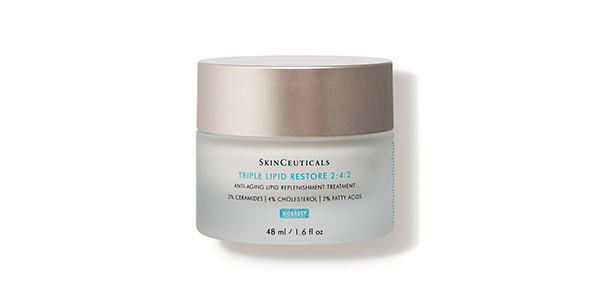
This multitasking moisturizer also made our dermatologist-approved day cream roundup because it’s skin barrier-boosting benefits are needed 24/7. “I love that this is hydrating but not overly thick, and it helps to restore the natural skin barrier,” Dr. Doyle shares. An added bonus? “The lavender scent smells incredible,” she adds. $128, dermstore.com
For Mature Skin: Caudalie Premier Cru The Cream
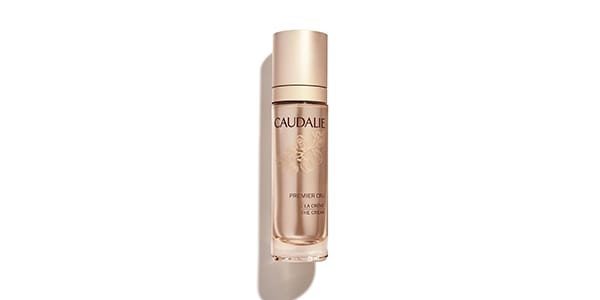
This luxurious anti-aging cream is the crème de la crème for aging complexions. “It’s great for mature skin that really needs extra hydration,” Dr. Doyle says. “It contains lactic acid and resveratrol, which are great for keeping the skin vibrant and youthful.” $140, sephora.com
For Acne-Prone Skin: Cetaphil Daily Oil-Free Hydrating Lotion
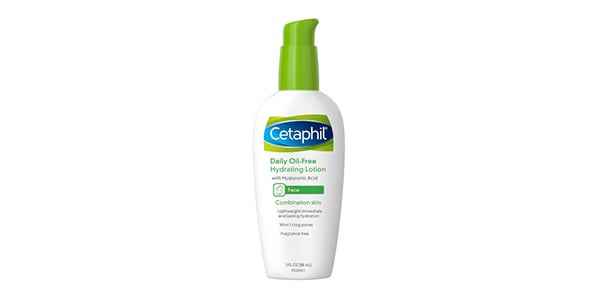
Dr. Kaskas recommends this lightweight lotion for acne-prone skin because it’s oil-free, fragrance-free, and non-comedogenic (i.e. it won’t clog pores). The hyaluronic acid-infused formula absorbs quickly and pairs well with topical treatments (think: acne medications). $17, target.com
For Combination Skin: La Roche Posay Toleriane Ultra Moisturizing Cream
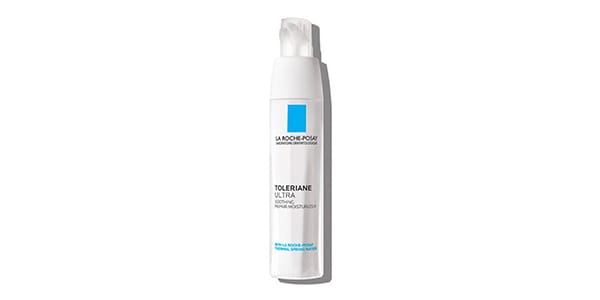
For skin that is too oily for a rich cream but too dry to forgo moisturizer altogether, this paraben- and fragrance-free formula is a true Goldilocks. “It is a cream base but still lightweight,” Dr. Jaber explains. “It has a nice smooth texture with a silky finish.” $30, ulta.com
For Sensitive Skin: Vanicream Moisturizing Cream
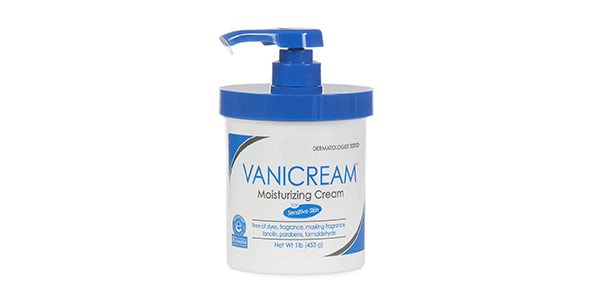
Recommended by all of our experts, this ultra-gentle cream is free of fragrance, dyes, lanolin, parabens, and formaldehyde, which makes it ideal for sensitive and allergy-prone skin. “It’s perfect for those who have had trouble tolerating any lotion or cream in the past,” Dr. Doyle says. $15, ulta.com
For Pairing With Retinoids: CeraVe Moisturizing Lotion
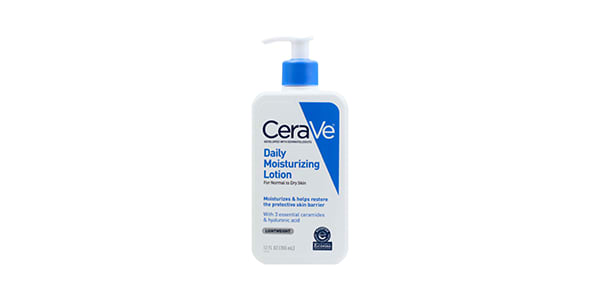
Whether vitamin A derivatives are part of your skincare routine to address aging or acne concerns, this oil-free lotion can counteract the drying side effects. “Ceramides help to recreate the skin barrier so your skin can heal and tolerate medications more effectively,” Dr. Doyle says, adding that the formula is “a great option” to pair with prescription retinoids. $13, ulta.com
For Calming Inflammation: Aveeno Calm + Restore Oat Gel Moisturizer
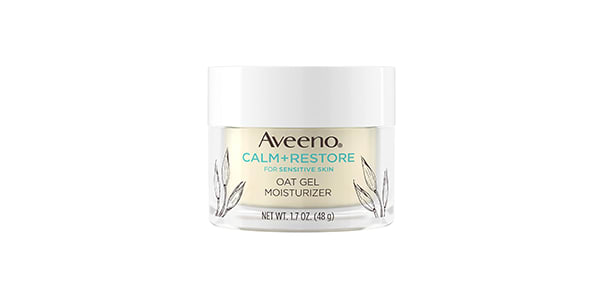
Dealing with redness or face mask-related irritation? This lightweight, fragrance- and paraben-free moisturizer can provide soothing relief. “It is very moisturizing and has oat and feverfew for calming and anti-inflammatory effects,” Dr. Jaber notes. $10, ulta.com
For Dry Patches: La Roche Posay Cicaplast Baume B5
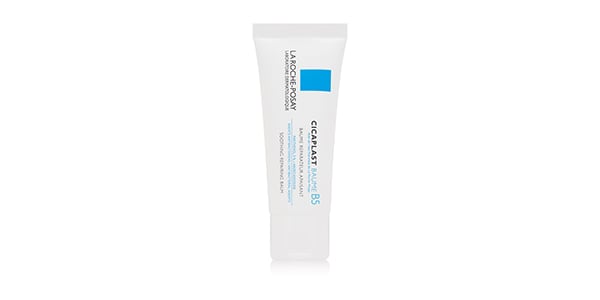
It’s rare for a rich balm to have a non-greasy, matte finish, but that is precisely the magic of this panthenol-, shea butter-, and glycerin-packed formula. Depending on your needs, Dr. Kaskas recommends using it either as a spot treatment on dry patches or as an all-over moisturizer. $15, dermstore.com
For Lightweight Moisture: Neutrogena Hydro Boost Gel-Cream for Extra-Dry Skin
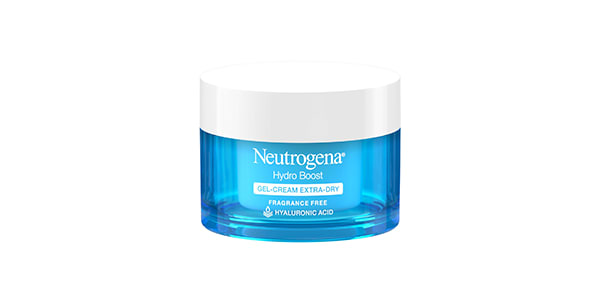
Well-tolerated by most skin types, Dr. Jaber finds his patients like this hyaluronic acid-rich moisturizer for both day and night. It attracts and locks in moisture, which makes it ideal for normal to dry skin. But its unique oil-free, gel-cream texture is also lightweight enough for combination and oily skin. We call that a win-win. $27, ulta.com
For All Skin Types: CeraVe Skin Renewing Night Cream
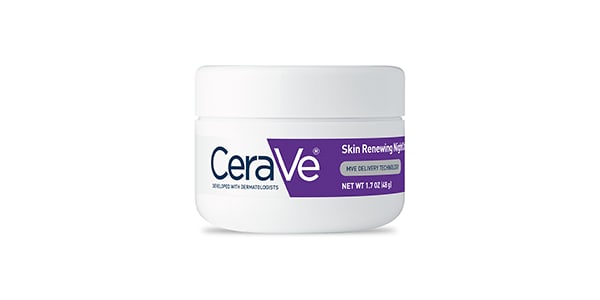
Skincare is anything but one-size-fits-all, yet this affordable night cream is about as universal as it comes. “It’s filled with peptides, hyaluronic acid, and niacinamide for hydration and restoration of the skin barrier,” Dr. Kaskas shares. “It is a gentle moisturizer and generally well tolerated.” $19, ulta.com
When to Apply Your Moisturizer
As with daytime skincare regimens, the order in which you apply your nighttime routine matters. “At night, I recommend starting with washing the face properly,” Dr. Doyle says. If you’re wearing makeup, she suggests removing it with a gentle makeup remover (her pick? Simple Micellar Cleansing Wipes), before moving onto a skin type-appropriate cleaner. “For those with acne-prone skin, I like prescription-based washes,” she shares. “For those with gentle, sensitive, or dry skin, I like Vanicream Gentle Facial Cleanser or Neutrogena Ultra Gentle Daily Cleanser.” From there, she suggests applying products from lightest to heaviest — starting with lightweight treatments and serums and ending with heavier cream-based moisturizers. Dr. Jaber notes that it is important to let the skin dry in between each step.
- Step 1: Remove makeup
- Step 2: Cleanse skin
- Step 3: Apply topical medications (if needed)
- Step 4: Add serums
- Step 5: Layer on moisturizer
While the lightest to heaviest layering technique is common, there are other ways to apply your nighttime skincare routine — particularly if you are using topical medications or potent treatments. In such cases, Dr. Kaskas suggests the so-called “sandwich” method. “Your nighttime moisturizer can be used to help make medicated topicals more tolerable or less drying and irritating,” she explains. This is often recommended to patients who are acclimating to a retinoid routine. “For example, the ‘sandwich’ method can be used when adjusting to topical retinoids,” she says. “A layer of moisturizer can precede and follow the retinoid to help make it less irritating.”
- Step 1: Remove makeup
- Step 2: Cleanse skin
- Step 3: Apply a base of moisturizer
- Step 4: Add topical treatments & medications
- Step 5: Finish with another layer of moisturizer
Regardless of which technique you choose, remember that less is more. Dr. Doyle recommends using a dime-sized amount of product for the full face and applying it gently, in circular motions, to both the face and neck. That’s right — the face doesn’t end at the jawline. Dr. Kaskas tells her patients to apply facial skincare products from the hairline to the bust line, so you treat the delicate skin of the neck and décolleté, too.
All products featured are independently selected by our editors, however, AEDIT may receive a commission on items purchased through our links.
More Related Articles
Related Procedures

AI Plastic Surgeon™
powered by'Try on' aesthetic procedures and instantly visualize possible results with The AI Plastic Surgeon, our patented 3D aesthetic simulator.

